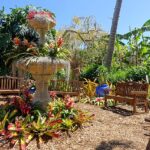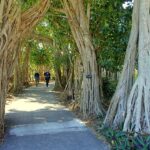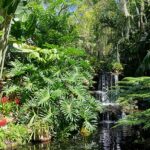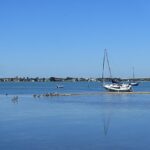News
Spring Course: Practical Rotordynamics for Real Machinery, April 22-25, 2024
Practical Rotordynamics for Real Machinery
Sarasota, FL
Courtyard by Marriott University Town Center
April 22-25, 2024
For engineers interested in rotordynamics training, we highly recommend Practical Rotordynamics for Real Machinery, on April 22-25, 2024. This extremely popular course has been presented in person and online more than 20 times during the past 12 years. Returning to Sarasota, Florida for in-person training, attendees can enjoy direct access to the experts, as well as recreational activities (beaches, golf, tennis).
To learn more about the course and to register, go to https://www.rotordynamicscourse.com.
This popular course will be team-taught by three world class experts in rotordynamics and Dyrobes.
Each of the three experts will focus on a particular area of expertise.
Lateral Rotordynamics
Malcolm Leader, P.E., President, Applied Machinery Dynamics
Malcolm has long been known as one of the best rotordynamicists in the world and is also well-known for his keen troubleshooting abilities. He has written several dozen papers on these topics.
Bearings
Dr. Erik Swanson, P.E., President, Xdot Bearing Technologies
In addition to traditional fluid-film bearings, Erik is well-known for his expertise in foil and magnetic bearings. Additionally, Erik is a wizard at using the DYROBES rotor/bearing computer code, which all of the presented case studies have been done in.
Torsional Vibration
Mark A. Corbo, P.E., President, No Bull Engineering
In addition to having authored some of the most well-known and best-received papers on the subject, I am currently serving as the Chair for the Torsional section of the API 684 rotordynamics tutorial.
Here are some of the topics that will be addressed:
1. Fundamentals/Basics
2. Relevance of the various topics (i.e., why do we even care about this?)
3. Modeling tips
4. Undamped critical speed maps
5. Unbalance response analysis
6. Rotordynamic instability
7. High pressure compressor stability analysis
8. Pump rotordynamic considerations
9. Fluid-film bearing types
10. Tilting-pad bearings
11. Specialized bearings (i.e., magnetic bearings, foil bearings, etc.)
12. Seals
13. Undamped torsional analysis
14. Torsional Campbell diagrams
15. Variable frequency drives
16. Torsional response analysis
17. Synchronous motor start-up analysis
18. Reciprocating machine torsionals
19. Machinery specific considerations
20. API specifications and compliance
21. Case studies
The course, which will cover all of the above topics, will run from Monday through Thursday (22 through 25 April) and cost $2950 per participant. In addition to the formal sessions, all attendees will be treated to dinner at a local restaurant on Monday evening, which always serves as an excellent “ice-breaker.” There will also be plenty of time for informal interaction with all three instructors, including breaks and lunches.
Some of the benefits you will receive from taking this course include:
1. A greater familiarity with lateral and torsional rotordynamics which will allow you to communicate more effectively with experts in the field.
2. A better understanding of the meaning and validity of rotordynamic results obtained from consultants and/or in-house rotordynamic codes.
3. A better understanding of the rotordynamic causes of common rotating equipment problems which will assist you when trying to troubleshoot field and test-stand problems.
4. A better feel for which system elements play an important role in rotordynamic behavior and which ones have little impact. This will be valuable when evaluating potential design changes.
5. An appreciation that rotordynamic analysis can be performed in a practical and timely manner and does not require a “research project.”
6. An appreciation for the large role that rotordynamic behavior plays in the reliability of rotating equipment and for the importance of evaluating that behavior in the design stage.
To register, all you need to do is go to www.rotordynamicscourse.com.
As always, if you have any questions about Dyrobes rotordynamics software, or would like a free trial copy, please contact us.
Photo credit: Daderot, CC0, via Wikimedia Commons




